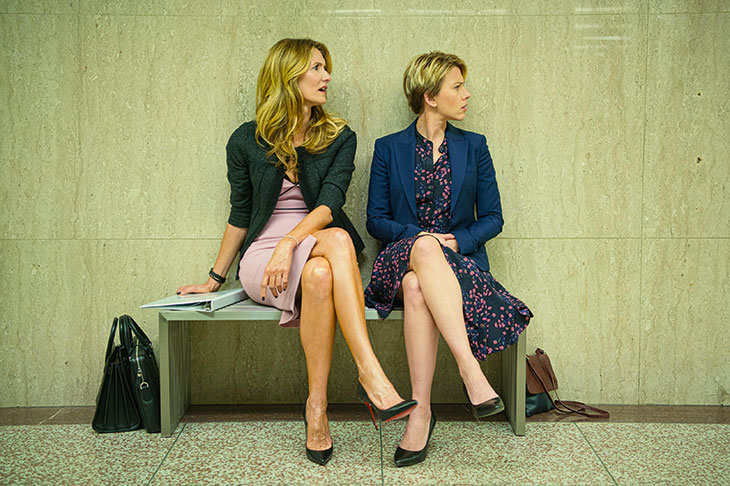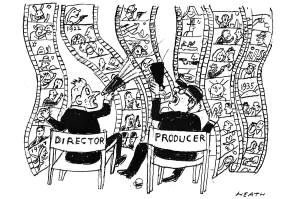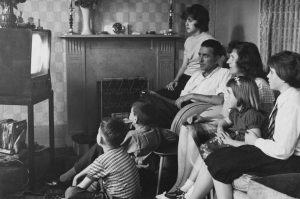Noah Baumbach’s Marriage Story is a drama about the breakdown of a marriage and it is, at times, devastatingly painful. ‘Divorce,’ says a lawyer at one point, ‘is like a death without a body.’ It’s certainly not the most fun you’ll ever have at the cinema — although it is witty and there are some brilliantly comic lines — but you will see something riveting, detailed, authentic and excellent. Plus it also marks the return of Scarlett Johansson as an interesting actress — remember Lost in Translation? — rather than the one who hangs out with Iron Man and Thor and just does sexy kicks. I’d even forgotten she could be as interesting as this, frankly.
Johansson plays Nicole while Adam Driver plays Charlie. They’re a married couple with an eight-year-old son, Henry (Azhy Robertson), who live in New York. Charlie is an up-and-coming theater director while she’s the actress who stars in his highbrow plays but is originally from LA and planned to have a Hollywood career.
The film opens with a montage of them saying what they love about each other. Nicole endlessly brews cups of tea she never drinks, adores playing with Henry, speaks to strangers for too long. Charlie eats like someone is about to steal his food, relishes being a dad, dresses well even if he isn’t vain. It’s charming and sweet and romcom-ish but it then transpires that we are in a mediator’s office and these are the lists of what they had loved about each other. They are meant to read these lists aloud to each other, so the proceedings can begin positively, but she refuses. She is angry, hurt, sad. And so is he. However, they do agree to figure it all out between themselves rather than get lawyered up because they are not the kind of people who want to tear each other apart. Except, except, except…
When she moves back to LA to film a TV pilot, taking Henry with her, she is encouraged to consult a divorce lawyer. Don’t, I was desperate to tell her. Haven’t you seen Kramer vs Kramer? Oh, God. Too late. She hires high-powered attorney Nora Fanshaw (Laura Dern; wonderful). ‘Sorry for looking so schleppy,’ she apologizes, while traversing her office in skintight red dress and stilettos. Nora is rapacious but can also be sympathetic and right on the money, particularly when she gives a little speech about how, in divorce courts, dads are allowed to be meh, but mothers? Never.
Charlie does not lawyer up and does not lawyer up and does not lawyer up. But then he is forced to. First it’s cold-blooded Jay (Ray Liotta), but then he settles for the gentler Bert Spitz (Alan Alda, also wonderful). Bert’s the one who compares divorce to a death and later says: ‘Criminal lawyers see bad people behaving at their best while divorce lawyers see good people behaving at their worst.’ Charlie and Nicole put each other through hell. They know what’s happening but can’t stop it. Not, that is, until they can learn to be honest with themselves. Charlie, particularly, takes his time. For much of the film he’s plain baffled. He has to realize that his marriage story may not be hers; that there is never a marriage story, only marriage stories. His is not the only truth. Love that unravels can ultimately mutate into something sound, Baumbach is suggesting, but respect for each other’s narratives has to come first. We, meanwhile, are never asked to take sides. Even if we do. A bit. (Hers, hers, hers!)
This is harsh and heartbreaking, but also sometimes gentle — when Charlie breaks down in the soulless LA apartment he has to rent and Nicole cradles him, for instance — and occasionally very funny. Nicole’s mother (Julie Hagerty) persists in having a soft spot for Charlie, much to the annoyance of Nicole, and Nicole’s awful TV pilot is played wonderfully for laughs. Merritt Wever is somewhat wasted as Nicole’s sister, Cassie, but it is Merritt Wever (from the incredible Netflix series Unbelievable) so there is that.
Both leads are terrific. Johansson’s performance feels real and visceral and profound in ways that just don’t come out when she’s hanging with Thor and Iron Man and even Captain America. At around the midway mark she delivers a monologue about how she became ‘smaller’ the more successful Charlie became, and how she was simply ‘feeding his own aliveness’, that is sensational. Driver, too, is extraordinary, making us care for Charlie where we might not have done, and showing the vulnerable, frightened child beneath the assured surface. He is wounded literally towards the end and tries to hide the injury, but we understand it for the metaphor it is. This is devastatingly painful, at times, but worth it. Really.
This article was originally published in The Spectator’s UK magazine. Subscribe to the US edition here.






















